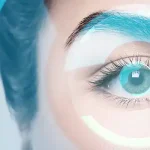In a human body, certain health issues are connected with each other. The diagnosis is like connecting the dots with each other. For instance, people who have diabetes tend to develop blinding eye diseases like cataracts, glaucoma, and diabetic retinopathy. There is no denying to the fact that often people are quite carefree with eye care. There are chances that such procrastination may lead to the development of serious ailments. This is why from time to time, there is a need for an eye check-up. It has come to notice that a lot of people are simply unaware of the fact that diabetes can lead to severe eye issues. The month of November is commemorated as the Diabetic Eye Disease Awareness Month. The goal lies in educating people on:
- How diabetes affects the vision of the human eye?
- What are the types of eye diseases?
- What are the risk factors and treatment options?
It is important to understand that diabetes leads to swelling in the macula that is addressed as diabetic macular edema. Over a period of time, the disease can destroy the sharp vision and it may lead to complete blindness or partial vision loss. A problem like macular edema develops in people who have signs of diabetic retinopathy. People who are diabetic have 25 times more chances of getting blind than those who are not diabetic. One of the leading causes of blindness in people is diabetes. Diabetic eye diseases can be prevented by maintaining good blood sugar, blood pressure, and cholesterol and keeping a good lifestyle. At the same time, one must get a comprehensive dilated eye exam once a year. In addition, women who have diabetes should get a comprehensive eye exam during their pregnancy.
Before going ahead, let’s understand what is diabetic eye disease?
The term diabetic eye disease addresses a cluster of eye problems that people often face who have diabetes. These diseases include cataracts, diabetic retinopathy, and glaucoma. The most common diabetic eye disease is diabetic retinopathy and it is the most common diabetic eye disease that leads to vision loss in adults between 20-74 years of age. The longer someone has diabetes, the bigger is the risk of developing diabetic eye disease.
Treatment at Centre for Sight
At CFS, there is a pool of seasoned eye doctors who are dedicated to treating eye complications. With advanced equipment and treatment facilities, eye specialists at Centre for Sight are always available to take care of your eyes. Coming to diabetic based eye diseases, it is so crucial to get a check-up regularly. It is ideal to get check-ups twice a year. When you do a regular check-up, a lot of eye problems may come floating. Usually, eye diseases do not show up immediately, as a matter of fact, they show up when they become severe. One must never take any eye problem or disorder lightly. Even at the pretext of any eye pain, you should seek consultation. With several branches strategically located across India, CFS aims at reaching out to all the patients in all corners. This November like always, CFS aims at eradicating diabetic eye disease and gifting healthy vision to everyone.





